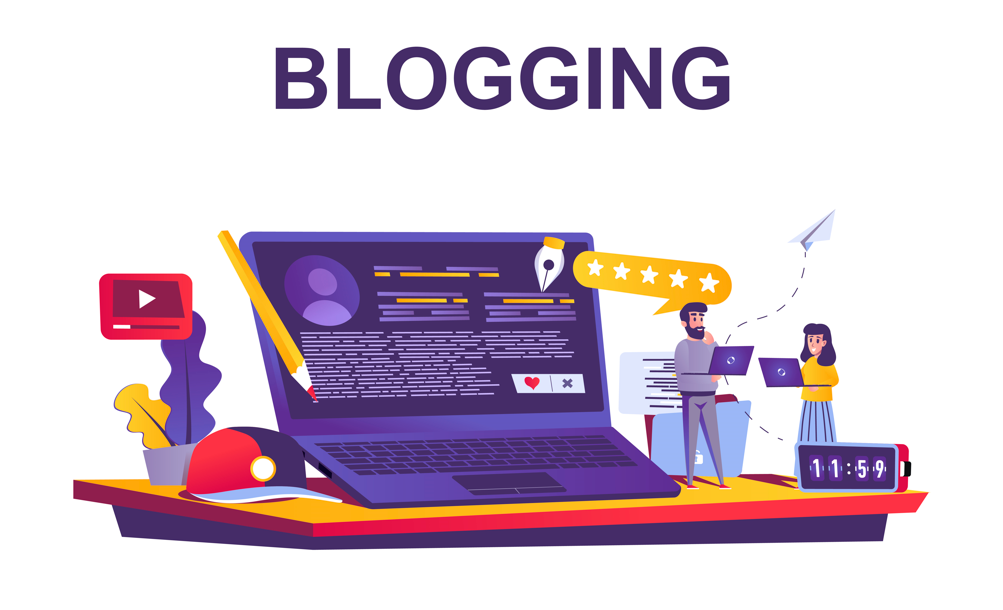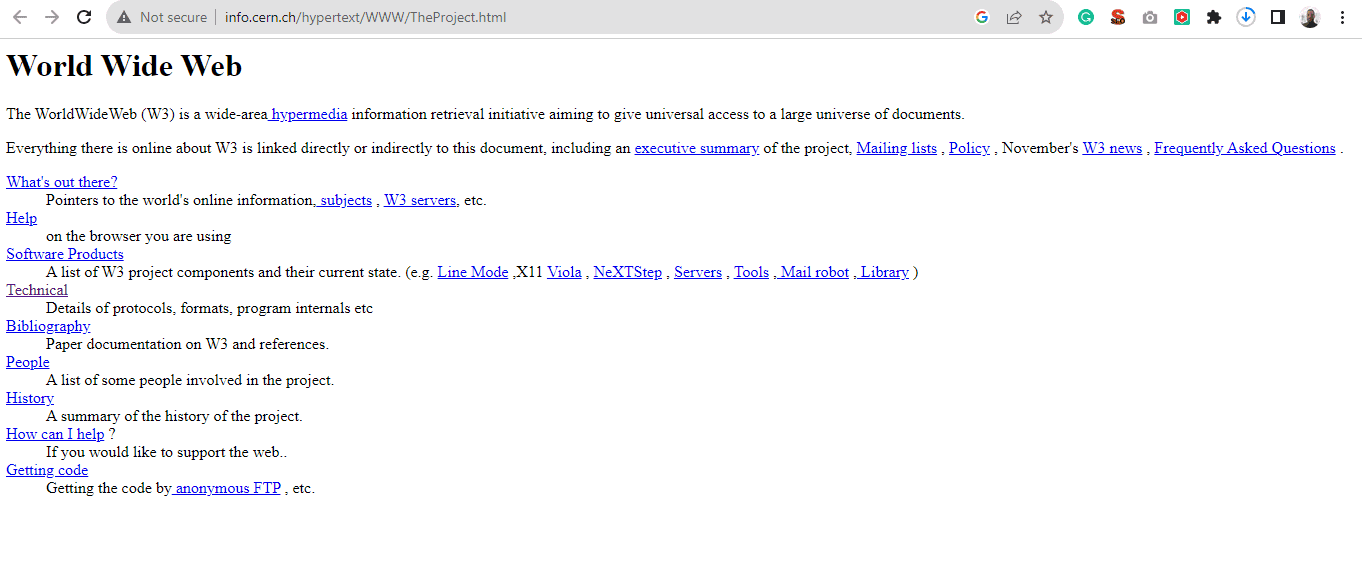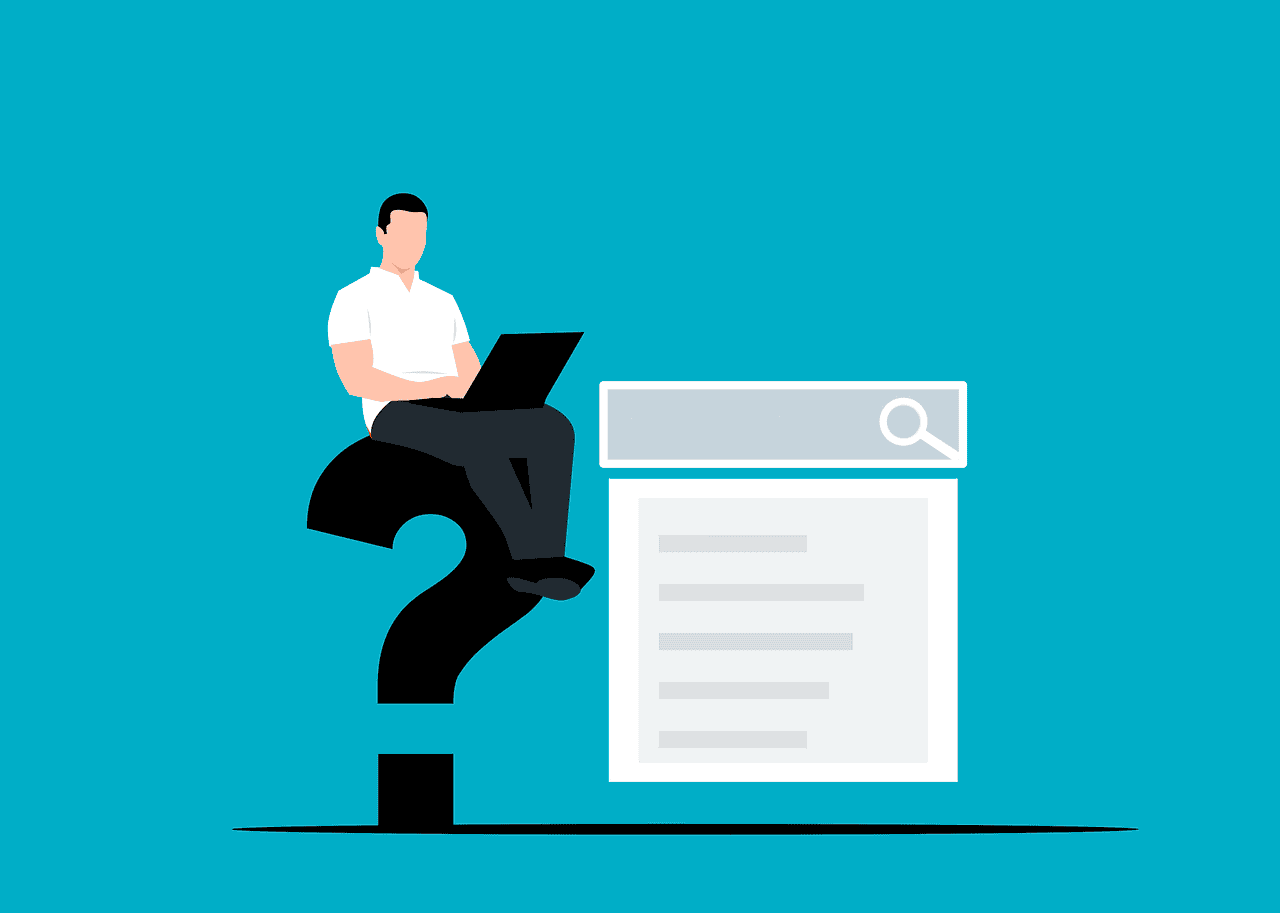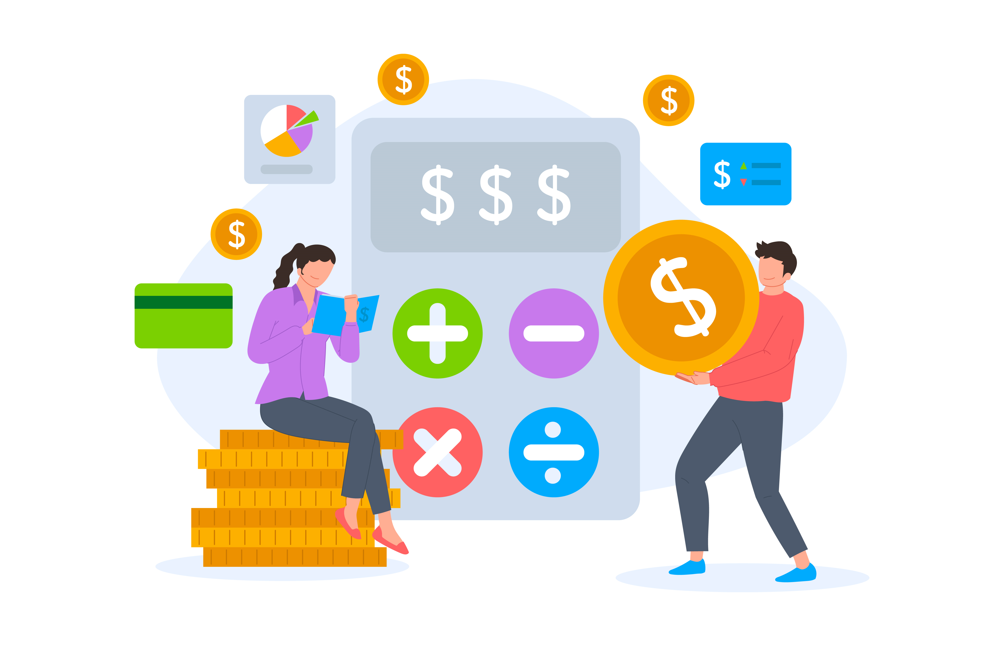Hey friends! It’s your pal Miguel here today to break down a big question on a lot of folks’ minds – what’s the difference between a website and a blog? And which one is right for your needs?
I know it can get confusing with all the overlapping terms and tech lingo out there. But don’t worry, I’ll explain the key differences between websites and blogs in simple language that anyone can understand!
We’ll take a little journey through history to see how websites and blogs evolved. Then dive into the pros, cons, and uses of each. By the end, you’ll be a pro at knowing when to use a website vs a blog…and even how to make money with a blog!
Grab your favorite snack and let’s get learning!
What is a Blog?
Let’s start at the very beginning – what is a blog exactly?
A blog is an online journal or informational site that is updated frequently with posts. The word “blog” comes from “weblog” – meaning logging updates to the web.
Blogs are more casual, conversational, and personal. The focus is on sharing ideas, stories, experiences, opinions, news, tutorials, or resources on a particular topic.
For example, some blog topics include:
- Travel – Sharing adventures, travel tips, and destination info
- Food – Recipes, restaurant reviews, cooking tips
- Fashion – Outfit photos, style advice, shopping finds
- Finance – Money tips, investing strategies, economic analysis
- Fitness – Workouts, healthy living advice, product reviews
- Parenting – Family activities, child development discussions
Blogs have new posts go up regularly. This distinguishes them from more static websites. The content is updated and evolving all the time.
Blogs are usually managed by an individual or small group. The tone is more friendly and relatable since you get to know the bloggers personally.
Now let’s dive into the history of how blogs started…
History of Blogs
Blogs grew popular in the 1990s as a way for individuals to publish their thoughts easily online in a chronological format.
In the early days, blogs were like personal journals shared publicly on the web. The very first is thought to be Links.net started by Justin Hall in 1994 to share his thoughts as a college student.
Tools soon emerged to make blogging easy for anyone without coding skills. Sites like LiveJournal, Xanga, and Blogger allowed users to quickly set up blogs for free. This caused blogging to explode in the early 2000s.
During this period blogs started covering more niches beyond just personal journaling – like politics, tech, music, news commentary, and eventually professional topics like marketing, business, and tech.
By the mid-2000s, blogging had gone truly mainstream. Search engines started indexing and ranking blog content, allowing bloggers to drive tons of traffic and even generate income.
Tools like WordPress and Tumblr made launching blogs easy and customizable with lots of themes and features. The “social web” also kicked the sharing of blogs into high gear.
Today, blogging remains hugely popular for all kinds of informational and interest-based sites from hobby blogs to major professional publications. Over 600 million blogs exist worldwide!
Next up, let’s contrast blogs with the longer history of websites…
What is a Website?
Now that we’ve got a handle on blogs, what exactly is a website?
Websites are broader sites on the internet that provide information, services, commerce, or other resources. They have more diverse purposes compared to blogs.
Some examples of website types:
- Informational – Providing reference info like dictionaries, maps, databases
- Ecommerce – Selling products and services online like Amazon and Shopify
- Service – Offering online tools, apps, software like Google, YouTube, Netflix
- Community – Connecting people around a topic like Facebook
- Personal – Sharing about an individual, artist, or influencer
- Portfolio – Displaying work samples like photographer portfolios
- Institutional – Representing organizations like universities, nonprofits
- Business – Serving commercial interests, promoting products/services
The key is that websites have a broader range of reasons for existing – from commerce to sharing data to offering services and more. While blogs specifically exist to share updates and commentary on a subject.
Websites also have some other typical characteristics:
- Owned by individuals, businesses, groups, organizations
- More formal tone and branding
- Slower rate of content updates (in general)
- More structured navigation and layout
Now a bit about the evolution of websites…
History of Websites
While blogs as we think of them today emerged in the 90s, the very first websites appeared in the early 1990s.
In August of 1991, Tim Berners-Lee created the first website on the World Wide Web. This provided an online information system where content could be linked between pages – an early version of linking and hypertext.
Following in his footsteps, the first webpages went live to the public introducing things like HTML formatting, URLs, and HTTP protocols that are still used today.
Early sites were very simple pages of text and images focused more on documenting technical info and sharing personal interests of the creators.
They didn’t have the more dynamic multimedia or eCommerce functions common today.
Through the 90s, websites grew more advanced with development tools like JavaScript, server-side programming, and databases allowing for dynamic experiences.
E-commerce websites also emerged allowing for buying products and services online.
By the late 1990s websites became central parts of company branding and daily life enabling communication, commerce, and entertainment.
Websites became bigger business in the 2000s with the need for careful branding, marketing, design, and technology to attract and engage visitors in a crowded digital space.
So in summary – websites started out basic but grew more robust in purpose and capabilities over time. Setting the stage for the diverse landscape of sites we know today!
What is The Difference Between a Blog and a Website?
Now that we’ve taken a quick spin through history, let’s get to the good stuff – what are the key differences between blogs and websites?
Here are some of the biggest distinguishing factors:
Purpose
- Websites have diverse purposes – ecommerce, informational, services, etc.
- Blogs focus specifically on commentary and updates about a topic.
Content
- Websites may have some blogs/articles, but also other content types like services, tools, apps, multimedia.
- Blog content is primarily articles/posts published consistently.
Authorship
- Websites are usually commercial ventures with formal organizational branding.
- Blogs have individual or small group authors with a personal tone.
Structure
- Websites organize content across different sections and site architecture.
- Blogs show articles in chronological order, categorized by topics/themes.
Updates
- Websites tend to be updated slowly depending on purpose.
- Blogs update regularly with new posts.
So in summary – websites serve many purposes, while blogs specifically offer commentary on a subject through posts. But of course, some overlap exists!
Blog or Website – Which One is Better for You?
With the differences covered, which type of site is “better” – blog vs. website?
Well, the answer depends on your specific goals and needs!
Websites are great for:
- Businesses – promoting services, driving sales
- Organizations – sharing info, resources, tools
- Portfolios – showcasing visual or written work samples
- Community – enabling interactions and discussions
- Services – offering apps, tools, software, content
Blogs are ideal for:
- Sharing your passion – travel, food, parenting etc.
- Telling stories and experiences
- Offering tips, how-tos, tutorials
- Commenting on news, current events, analysis
- Making money through ads, affiliates, and sponsors
As you can see, blogs excel at self-expression, storytelling, and building engaged niche communities around interests and hobbies.
Websites can serve any number of purposes from commercial to professional to informational.
You can even blend websites and blogs by integrating blogging features like articles/posts into broader commercial or informational websites Just like we do here at Unique Web Designer!
Choose the best fit based on your specific goals.
Starting a Blog vs Starting a Website
What’s the process like to get each one up and running? Let’s do a quick comparison of starting a blog vs starting a website:
Setting up a blog
- Choose a blogging platform like WordPress.com or Medium
- Select a template and personalize basic branding like colors, fonts
- Add a few details like title, description, profile photo
- Start publishing posts and sharing with readers!
Building a website
- Buy a domain name and secure web hosting
- Select a platform like WordPress or Shopify and install/setup
- Optimize site architecture with pages and navigation
- Add visual branding – logo, color palette, typography, imagery
- Set up contact forms, calls-to-action, email opt-ins
- Publish inventory/content across all pages
Costs
- Hosted blog platforms like WordPress.com are free to start, but limited
- Self-hosted blogs cost for hosting, domain, themes
- Basic websites around $8/month for hosting, plus tools, and themes, depending on your needs. For hosting, I recommend Siteground (affiliate link)
- Custom-developed sites $2,000+ for design and development depending on the features and number of pages
As you can see, blogs are quicker and simpler to get started since you use an existing platform. Websites take more upfront planning and development work to create a custom experience.
But both are easy to scale up over time!
What is The Difference Between Blog Posts and Pages?
Now that you know blogs revolve around posts, how do posts compare to website pages?
Blog posts are:
- Chronological articles focusing on a specific topic
- Published regularly with newest on top
- Can be organized by categories/tags
- More casual tone and multimedia
- Typically 500 – 2,000 words
Website pages are:
- Created to provide broader information
- Organized logically, not chronologically
- Part of larger site architecture and menus
- More formal professionally written tone
- Any length depending on purpose
So think of blog posts as the regularly published articles that make up a blog’s core content.
Website pages serve diverse purposes across an entire site architecture beyond just blog-style articles. Pages might include:
- Homepage
- About Us
- Services
- Products
- Contact
- Ecommerce category pages
- Portfolio pages
- Pricing
- Events etc.
Now you know the difference between blog posts and website pages!
Why Do People Blog? What are The Benefits of Blogging?
Blogging has become a massive phenomenon…but why do so many people do it? What makes it worthwhile?
Here are some of the core benefits and motivations around blogging for individuals and businesses alike:
Share your passion and connect
Blogging lets you share your interests while connecting with a community. It’s hugely rewarding to bond over common passions and provide value to readers.
Express your creativity
Blogs allow you to flex your creative muscles through writing, photography, recipes, DIY projects, and more. The possibilities are endless!
Establish expertise
Blogging consistently on a topic allows you to establish expertise and credibility that leads to all kinds of opportunities.
Supplemental income
Through advertising, affiliates, sponsors, and products – blogging can become a lucrative side business. More on this later!
Go full time
Top bloggers can earn a full-time living with their blogs generating 5 and 6-figure incomes. Living the dream!
Launch a business
Many entrepreneurs start blogs to establish authority in an industry before launching products, consulting services, courses, etc.
Flexibility
With just a laptop and WiFi you can blog from anywhere, on your own schedule. The flexibility is a huge perk!
Build marketing assets
The content you create through blogging becomes a valuable marketing asset to drive traffic, leads, and sales long term.
Own your platform
There’s creative freedom in owning your own platform compared to other social media sites. Take your content wherever you want!
As you can see, there are so many benefits beyond just sharing your passion and perspective. Blogging opens up amazing opportunities.
What are Some Examples of Good Blogs?
Now that you know why blogging is so powerful, let’s look at some examples of really successful blogs across different topics:
The Penny Hoarder – Save money and make extra cash
Budget Bytes – Affordable and healthy recipes
James Clear – Easy & proven ways to build good habits & break bad ones
Minimalist Baker – Simple vegan recipes
Wait But Why – Big topics explained conversationally
Zen Habits – Habits and mindfulness for simplicity
ProBlogger – Make money blogging (meta!)
Nerd Fitness – Health and fitness for nerds
Smart Passive Income – Business and marketing strategies
Unique Web Designer Blog – Shameless plug, learn about web design and local SEO
Mr Money Mustache – Personal finance, early retirement, and other more.
There are amazing blogs in every niche you can imagine. Check out leaders in your industry for inspiration!
The common ingredients for success are consistent value-packed content, distinctive voice, strong engagement, and high-quality visuals.
Study what the pros are doing!
How Do Bloggers Make Money?
One of the most appealing aspects of blogging for many creators is the potential to generate income.
While it takes time to build up an audience, once you have sufficient traffic, here are some of the top ways bloggers bring in the big bucks:
Advertising
- Display ads – banners, sidebar ads, text links, etc
- Sponsored posts – create content promoting a brand’s product/service
- Sponsored emails – promotions sent in email newsletters
Affiliate Marketing
- Links to recommended products where you get a commission on purchases
- Review products and share affiliate links
Products/Courses
- Sell your own digital or physical products
- Online courses teaching your skills and expertise
Brand Sponsorships
- Get paid by brands to feature their products/services
- As a brand ambassador, spokesperson, influencer
Memberships/Subscriptions
- Offer exclusive member benefits for a monthly fee like courses, forums, discounts etc.
Consulting/Freelancing
- Sell your skills and expertise as a consultant for businesses
- Freelance services like writing, design, coaching
There are lots of ways big and small to monetize a blog and turn your passion into profit. With hard work and creativity, the possibilities are endless!
Can Anyone Start a Blog?
After learning all this you may be wondering – can anyone start a successful blog? Or do you need special skills?
The answer is that absolutely anyone can start a blog! It’s easier than ever.
But to create a thriving blog that earns income, you need to cultivate some specific skills:
- Consistent writing/content creation – publishing regularly
- Social media marketing – driving traffic by promoting your content
- Basic technology – comfortable with the basics of websites and blogging platforms
- Advertising – how to effectively partner with brands
- Audience engagement – fostering community and discussions
- Time management – discipline to actively maintain and grow your blog
If some of these feel overwhelming as a beginner, you can also team up with others.
For example, partner with a business co-founder for help with marketing and monetization. Or hire a virtual assistant to help with content creation and social media.
The key is regular high-quality content and audience engagement. With the right skills and support, anyone can succeed!
Website vs Blog: Wrap-Up
Let’s do a quick recap on the website vs. blog differences:
Websites
- Broader purposes – eCommerce, info, services
- Owned by businesses and organizations
- Slower updates, more structured layout
- Diverse content types – media, apps, tools
Blogs
- Focused on commentary through posts
- Owned by individuals, small teams
- Regularly updated chronological posts
- Conversational, personal tone and stories
While different in purpose, they can complement each other powerfully…so pick the option (or combo) that best matches your goals!
I hope this beginner guide covered all the website and blog basics in easy-to-understand language. You’re now well-equipped to launch your online place in the world!
If you’re feeling inspired to start a website or blog after reading all this, but don’t know where to begin or prefer having a professional by your side, the expert team at Unique Web Designer can help!
We specialize in building beautiful, high-performing websites and blogs tailored to your specific business needs.
With decades of combined experience in WordPress web design, development, and local SEO, we have the skills to bring your online vision to life.
Our talented designers will craft stunning visuals while our developers integrate powerful functionality and top-notch security.
We stay on top of the latest web and blogging best practices so your site will impress visitors and rank highly in search engines.
If you’re ready to launch your dream website or blog, get in touch! We offer complimentary consultations to discuss your goals and ideas. Let’s chat about how we can partner to create your ideal online home. The possibilities are endless – our team looks forward to helping you succeed!
Let me know if you have any other questions. I’m happy to provide more details on getting started with blogs, websites, making money online, or just about anything else.
Wishing you the best of luck with your ventures. Talk soon!







